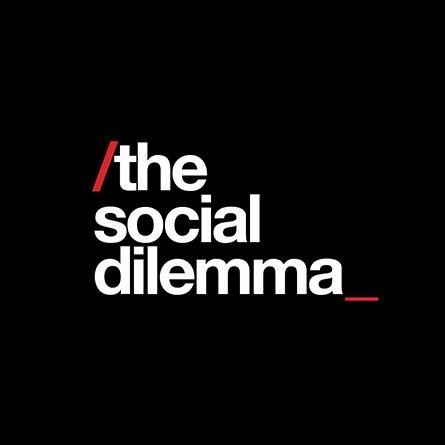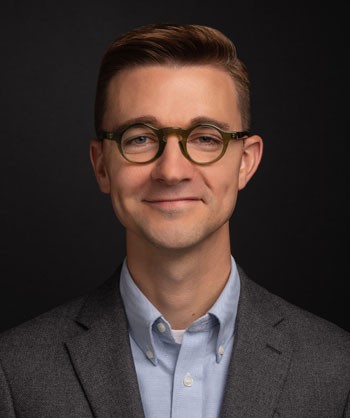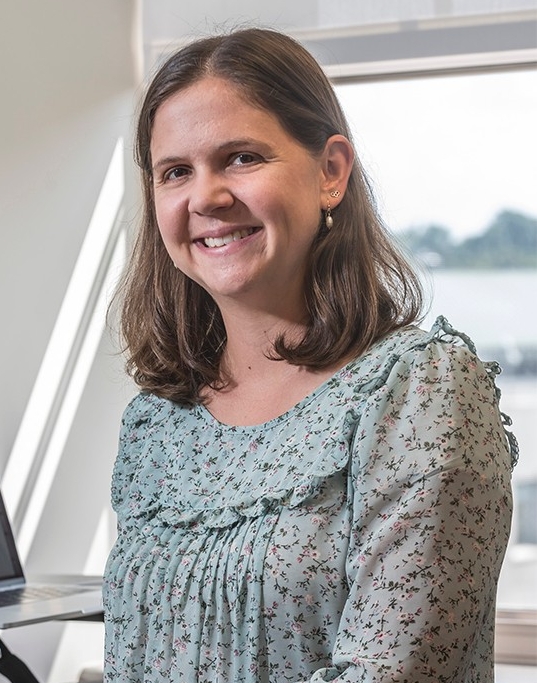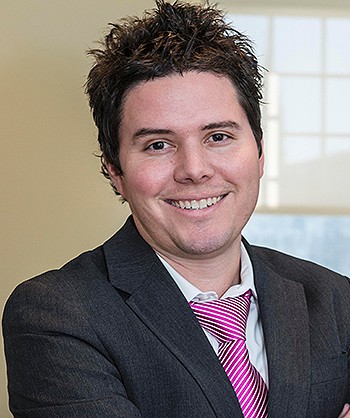Engaging The Social Dilemma: Social Media and the Polarization of Politics and Pews
The 2020 documentary, The Social Dilemma, unveils the ugly capacities of the very social media platforms many of us spend hours on each day. Economic interests have commodified our social media use, incentivizing greater monetization through advertisements and the implementation of advanced algorithms to ensure that use only increases. But additional time results in additional exposure to the abundant misinformation that floods the platforms. The combination of use, misuse, and the manipulation of use has led the world's societies, including our own, toward extreme polarization. After viewing the documentary--with one such opportunity hosted by the Boisi Center--join us for a panel further exploring the influence of social media as it leads to the greater polarization of our society, our politics, and our religion.
On Wednesday, April 21st, Michael Serazio and Kristin Peterson of the Boston College Communication Department, and R. Zachary Karanovich, PhD student in the BC Theology Department and the Boisi Center’s graduate research assistant, were participants in a lunchtime webinar entitled, “Engaging The Social Dilemma: Social Media and the Polarization of Politics and Pews,” in which they discussed the recent Netflix documentary, The Social Dilemma.
Serazio began his remarks by raising up Marshall McLuhan as the “patron saint” of this film, who was a media theorist of technological determinism and argued that we have been problematically reshaped by media that renders us nearly defenseless to its influence. Serazio, however, questioned this determinism and its implications for human agency.
Regarding the documentary, Serazio praised it because of its comprehensiveness in addressing the many interrelated problems related to social media (mental health, polarization, addiction, etc.). It also clarifies the problematic role of algorithms, which lead us to certain types of information. It reveals the addiction logic that characterizes the success and use of the platforms. And it explores the business side—the way advertisement funding requires the platforms to demand our attention. Serazio was, however, surprised at how many former tech industry employees shared their insider information.
Yet, he also questioned the documentary. Determinism implies a paradise from which we fell, but, Serazio argued, there was misinformation well before these platforms existed. Though groups do thrive on social media, conspiracy theories have flourished in other forms of media. But ultimately, he asked, what does blaming something external to ourselves imply about our own responsibility?
Peterson agreed that social media is not the first technology to cause these social and moral anxieties—think of the printing press and photography. And, because it is not new, many studies have shown the influences of media on our sense of self and have provided models for solutions that can be helpful for consideration in the case of social media.
She summarized the documentary’s critique of social media as the way the platforms have been designed to capture and monetize our attention. This means that, on these platforms, information is created, shared, and used in emotionally charged ways and with little depth. How, then, do we regain control of that information intake and use on social media platforms?
Peterson argued that the path forward includes methods to regain human agency and recreate social platforms to be more humane. To do this, she used the example of communitarian models of social engagement that are less capitalistic, patriarchal, and monetized. And she also reminded the viewers that social media is neither bound to that form of communication nor our only mode of communication.
Government regulation is needed, she noted. But it is also necessary to move away from the current advertising model. As well, it is important to slow the conversation down and disincentivize spread and gut reactions by using emotionally charged and shallow information. Algorithms ought to be rethought too. The platforms should promote content that leads to more virtuous behavior. This implies that we have a responsibility to hold people accountable and recognize that this is a shared space where we all have a stake.
She offered some examples of “good” platforms or the good use of existing social media platforms such as Wikipedia or mutual-aid platforms (neither of which are advertisement based, and the information is still universally available) as well as the way Twitter and Facebook are used in new and egalitarian ways by marginalized groups in particular faith communities. These examples show how platforms can be non-monetized yet universally available, or how platforms can be molded to be more virtuous.
Karanovich turned a bit beyond the documentary to the implications for religion, focusing in particular in the way social media has impacted the Catholic church. Noting that polarization is not new, he stressed that most average Catholics have not even engaged in theological conversations that lead to such disagreement. However, he observed, social media has changed that. Pre-social media, the “theologian” most often trusted by the faithful was the parish priest—theology was local. But as social media grew and platforms increased, more individuals and organizations joined them, and the theological conversation expanded to include more voices but with a different tone.
While mainstream Catholicism was present, fringe Catholicism also found its way to social media: Church Militant and Michael Voris, Fr. Frank Pavone, Taylor Marshall, Fr. James Altman, etc. They have pit Catholics against Catholics, Karanovich argued, because their outlets 1) are well-funded, optically appealing, and widely-available (often being “recommended” to anyone who clicks on Catholic material on these platforms); 2) provide information that resonates with their audience and reinforces biases against the “other side”; and 3) include priests—they have the patina of authority. Karanovich offered as an example the role of social media during the Pan-Amazonian Synod, which ultimately led to the criminal destruction of the cultural displays of Pachamama in certain Roman churches. The problem, Karanovich claimed, is that as these fringe Catholics have joined social media platforms, the most qualified “theologian” one knows is not necessarily my parish priest (who might now be a “liberal hack”) but are the people on these sites. They have become mainstream and, for some, more authoritative than the pope himself.
He offered a few initial solutions: 1) cultivating a virtue of humility by acknowledging the mixed good and bad of ourselves and others, 2) being responsible to the truth, and 3) focusing on those in social spheres closer to us with whom we have some power of persuasion. We have to acknowledge the gray of reality, he said, as opposed to trying to make the complex world black and white.
Questions from the audience touched on topics including how we address responsible technology use and mental health with students at Boston College, how social media platforms move away from advertising models, how to cultivate the virtue of humility amid such problematic disagreements and polarization built upon misinformation, and more.
Aral, Sinan. The Hype Machine: How Social Media Disrupts Our Elections, Our Economy, and Our Health—and How We Must Adapt. New York: Currency, 2020.Carr, Nicholas. The Shallows: What the Internet Is Doing to Our Brains. New York: Norton, 2020.
Brooker, Charlie et al, writers. Black Mirror. Zeppotron & House of Tomorrow, 2011-2019.
Jonze, Spike, dir. Her. Annapurna Pictures, 2013.
Koughan, Frank and Douglas Rushkoff. Generation Like. Frontline. 2014. https://www.pbs.org/wgbh/frontline/film/generation-like/.
Lanier, Jaron. Ten Arguments for Deleting Your Social Media Accounts Right Now. New York: Picador, 2018.
Madelup, Liza, dir. Jawline. Caviar, 2019.
Marcus, Bert, dir. The American Meme. Bert Marcus Productions, 2018. https://www.netflix.com/title/81003741.
McNamee, Roger. Zucked: Waking Up to the Facebook Catastrophe. New York: Penguin Books, 2020.
Naughton, John. “The Social Dilemma: a wake-up call for a world drunk on dopamine?” The Guardian. September 29, 2020. https://www.theguardian.com/commentisfree/2020/sep/19/the-social-dilemma-a-wake-up-call-for-a-world-drunk-on-dopamine.
Newton, Casey. “What ‘The Social Dilemma’ misunderstands about social networks: The world is more complicated than filmmakers want to believe.” The Verge. September 16, 2020. https://www.theverge.com/interface/2020/9/16/21437942/social-dilemma-netflix-review-orlowski-sarah-zhang-memo-facebook-buzzfeed.
Orlowski, Jeff. “Social Media Puts Us All in Our Own Truman Shows, Threatening Our Democracy (Guest Column).” The Hollywood Reporter. January 12, 2021. https://www.hollywoodreporter.com/news/social-media-put-us-all-in-our-own-truman-shows-threatening-our-democracy-guest-column.
Pankova, Elizabeth. “The Social Dilemma and the Rise of the Clickbait Documentary: Why the Netflix movie falls short as a critique of Silicon Valley.” Critical Mass. https://newrepublic.com/article/159657/social-dilemma-rise-clickbait-documentary.
Persily, Nathaniel and Joshua A. Tucker, editors. Social Media and Democracy: The State of the Field and Prospects for Reform. Cambridge: Cambridge University Press, 2020.
Price, Catherine. How to Break Up with Your Phone: The 30-Day Plan to Take Back Your Life. New York: Ten Speed Press, 2018.
Singer, P.W. and Emerson T. Brooking. Like War: The Weaponization of Social Media. New York: Houghton Mifflin Harcourt Publishing Company, 2018.
Turkle, Sherry. Reclaiming Conversation: The Power of Talk in a Digital Age. New York: Penguin Books, 2016.
In a recent interview with Deadline, the director of The Social Dilemma, Jeff Orlowski, reflects on the impact of social media on the January 6th attacks on the U.S. Capitol. He challenged readers to “reject a culture” that leads to such atrocities, a culture built upon algorithms that push us farther apart.





